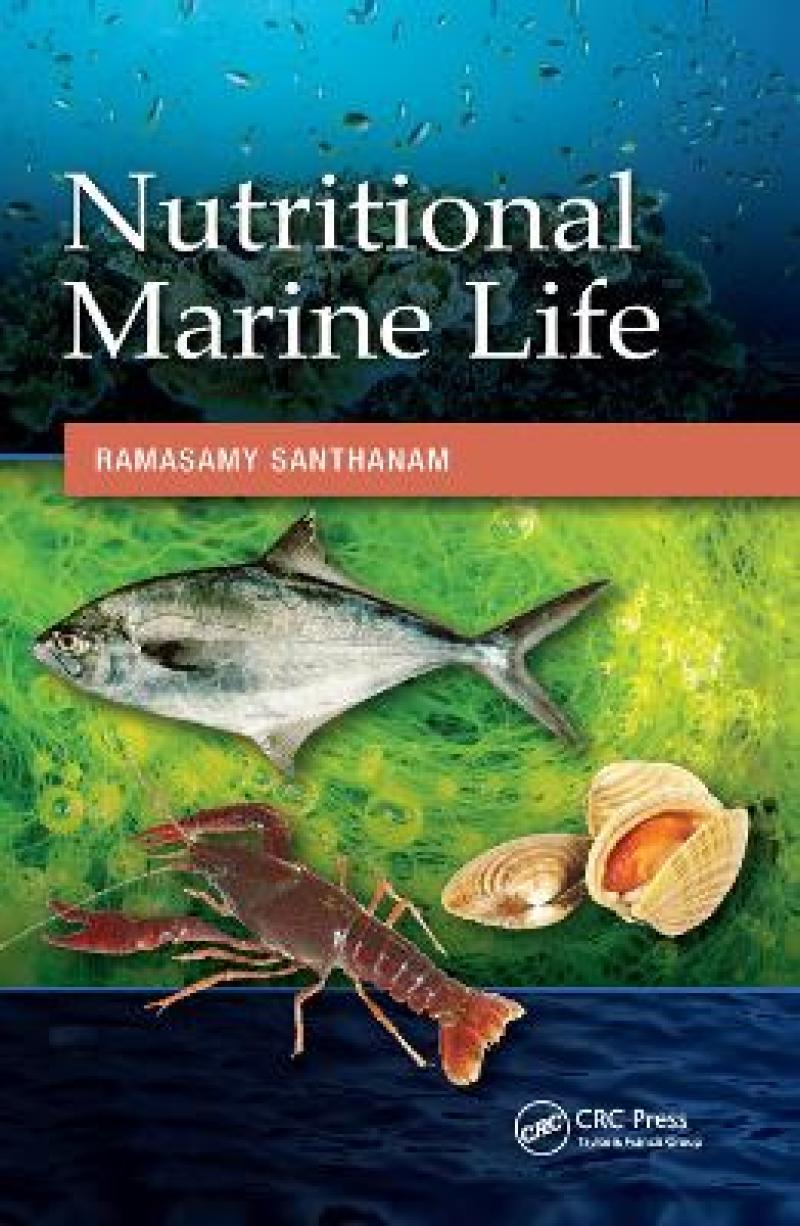<p>"<b>Nutritional Marine Life</b> fills a gap in the literature due to its focus on the nutritional qualities of edible marine life. Aimed at undergraduates and graduates in fisheries science, marine biology, aquatic science, and marine biotechnology, the book also serves doctors and dieticians and anyone involved in seeking ways to provide people in developing and underdeveloped countries with highly nutritious, accessible food. This high-quality reference source deserves a spot in every academic library, particularly those institutions supporting marine biology or fisheries programs."<br />—<i>ARBA</i></p>
The nutritional benefits of marine flora and fauna are well known. Fish and crustaceans provide high-quality sources of amino acids—nutritionally
important proteins found in only small amounts in cereals and grains. Nutrients and minerals in seafood can improve brain development and reproduction and there are strong links between fish and heart health. Similarly, other organisms such as phytoplankton and invertebrates possess several nutrients of health importance. All of these benefits are critical to global nutrition and particularly important to food-deficient, low-income countries.
The first book of its kind, Nutritional Marine Life explores the nutritional characteristics of the different species of the following groups of edible marine life:
- Phytoplankton
- Seaweeds and marsh plants
- Jellyfish
- Crustaceans
- Mollusks
- Echinoderms
- Prochordate
- Fish
- Turtles
- Mammals
For each species, the book discusses its classification, common name, habitat, global distribution, biological features, and nutritional facts. The highly accessible style and high-quality photographs make it easy to identify nutritionally and commercially important marine species. The book is ideal for students and researchers in fisheries and aquaculture and in related marine biology and biotechnology disciplines. It is also suitable as a reference for practitioners in those fields as well as dieticians, food scientists, and physicians interested in knowing about the health benefits of seafood.
Introduction. Nutritional Composition of Marine Foods: Fish, Crustaceans, and Mollusks. Seaweeds. Phytoplankton. Seaweeds and Marsh Plants. Green Algae. Brown Algae. Red Algae. Halophyte. Jellyfish. Crustaceans. Shrimps. Crabs. Lobsters. Mollusks. Oysters. Mussels. Clams. Scallops. Conches. Abalones. Limpet. Squids. Cuttlefish. Octopus. Echinoderms. Starfish. Sea Urchins. Sea Cucumbers. Prochordate. Fish. Teleosts. Elasmobranchs. Turtles. Mammals. References. Index.
Produktdetaljer
Biografisk notat
Dr. Ramasamy Santhanam is the former Dean of the Fisheries College and Research Institute at the Tamilnadu Veterinary and Animal Sciences University in Thoothukudi, India. His fields of specialization are Marine Biology and Fisheries Environment. Presently he is serving as a resource person for various universities in India. He has also served as an expert for the Environment Management Capacity Building, a World Bank-aided project of the Department of Ocean Development, India. He was a a member of the American Fisheries Society, the World Aquaculture Society, the Global Fisheries Ecosystem Management Network (GFEMN), and the International Union for Conservation of Nature’s (IUCN) Commission on Ecosystem Management, Switzerland. To his credit, Dr. Santhanam has 17 books on Fisheries Science/Marine Biology as well as 70 research papers.
